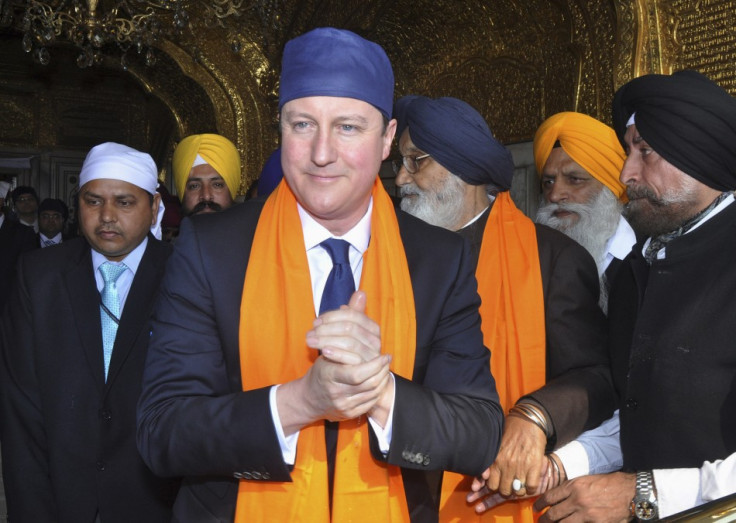Amritsar Massacre Apology Would Help India, Britain and the Tories [BLOG]
David Cameron's refusal to say sorry for the British troop massacre in Amritsar in 1919 is a missed opportunity

Much has been made in India and the UK of David Cameron's refusal in February to extend a formal British apology for the Amritsar massacre of 1919. According to British Indian sources, at least 379 innocents were killed in the violence, although the Indian National Congress' estimate is closer to 1,000. These disparate statistics are emblematic of just how traumatic the massacre has been for both nations, and political reactions to them also reveal how important ideas of trauma, shame and apology are to the modern construction of nationhood.
We need look no further than the fascinating phenomenon of Australian Sorry Books to witness how important the recognition of, and apology for, past crimes can be to a nation's pride and self-identity.
The Sorry Books were an initiative that encouraged "ordinary Australians" to "do something in response to the federal government's refusal to make a formal apology to the stolen generations" and for other crimes against the aboriginal population. The books were also signed by tourists expressing similar sentiments, notably about the Holocaust.
One particularly telling entry in the books emphasises "the need to recognise the shameful aspects of Australia's past". "Without that how can we celebrate present glories?" it askes.
Problematically, this apology privileges the abstract cultural guilt felt by non-aboriginal Australians over the actual crimes committed against aboriginals but valuably, it does identify the potential for healing and reconciliation presented by officialised apologies.
Sarah Ahmed identifies that in official apologies, "national shame can be a mechanism for reconciliation as self-reconciliation, in which the 'wrong' committed provides grounds for claiming a national identity, for restoring pride that is threatened in the moment of recognition".
In this sense Cameron's refusal to apologise seems particularly absurd as it arguably presents an opportunity to preserve the British national identity that he and his party seem so keen to hold on to.
As a moral buffer, Cameron cited Winston Churchill's contemporary criticism of the massacre, using it as grounds for why he shouldn't "reach back into history to seek out things you can apologise for".
Churchill did indeed label the massacre "monstrous" but as a late defender of the empire and a man who once confessed "I hate Indians. They are a beastly people with a beastly religion", it seems deeply insensitive for Cameron to cite him as an exemplary ethicist.
Cameron seems so keen to invoke Churchill and to retain an archaic sense of national pride that he fails to perceive the very nationalist potential of confession, apology and reconciliation. His fears of seeming weak on the international stage instead make him appear offensively out of touch. In effect, he's so classically Conservative that he can't perform modern Conservative politics correctly.
An apology costs nothing but Cameron's refusal to do so is causing him and his nation a deep shame that, if nothing else, the Conservative party could be reconciling for some much-needed PR.
© Copyright IBTimes 2025. All rights reserved.





















